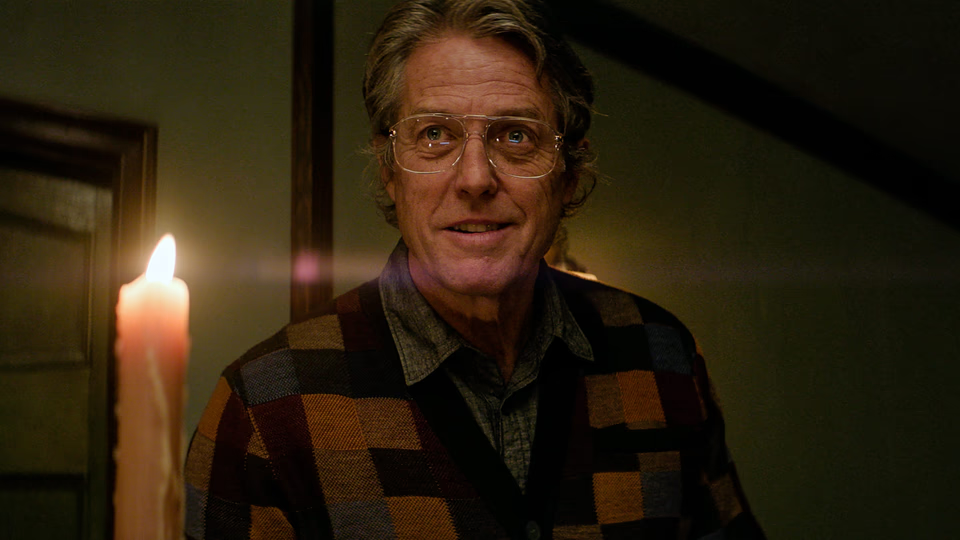Heretic

There’s a moment early in Heretic where Hugh Grant’s character, an aging recluse living in what appears to be a museum of shadows, leans forward in his armchair and begins to speak about faith. The camera catches him just so—half his face illuminated, the other half swallowed by darkness—and for a brief, electric moment, we glimpse what this film could have been. Grant, deploying the same romantic comedy mannerisms that made him a star (the stammer, the sheepish grin, the over-the-glasses glance), transforms them into something sinister. It’s a masterclass in how to subvert an actor’s established persona, reminiscent of Henry Fonda’s against-type turn in Once Upon a Time in the West.
But movies, like sermons, live and die by their revelations.
The setup is promising: two young Mormon missionaries, played with earnest conviction by Sophie Thatcher and Chloe East (though they never quite match Grant’s magnetism), canvas a small town. Directors Scott Beck and Bryan Woods open with beautiful wide-shots where the scenery dwarfs the pair. Then, as the weather turns dark and stormy, they arrive at Grant’s secluded cottage. Now the visual grammar shifts, tight shots predominate, lending feelings of claustrophobia and faith under siege.
For two acts, Heretic builds its mystery. Grant’s character claims to have uncovered the “true” religion, and the film teases us with the possibility of something profound about faith, doubt, and the human tendency to seek meaning in shadows. The missionaries’ convictions are tested, not through crude supernatural displays, but through Grant’s insidious charm and seemingly reasonable questions.
Then comes the third act.
Without spoiling the revelation, I’ll say this: imagine if The Shining ended with the revelation that Jack Torrance had simply been gaslighting Wendy the entire time. The film’s storytelling sin isn’t that it makes its villain a privileged white male but rather that it takes two hours of sophisticated psychological horror and resolves it with the storytelling equivalent of “and then they woke up.” Hugh Grant deserved better. So did we.
The title Heretic promises religious transgression, the crossing of sacred boundaries, the violation of orthodoxy. It’s a promise the film makes early and often, but ultimately fails to keep. Rather than truly challenging our notions of faith and doubt, it retreats into comfortable certainties. The heretic, it turns out, isn’t heretical enough.
In 2008, the French shocker Martyrs used graphic violence to challenge the audience’s perception of the value of suffering. Heretic had similar potential but lacks the courage of its convictions. Like its antagonist, it puts on a charming face, makes grand promises, but ultimately reveals itself to be far less interesting than it pretends to be.